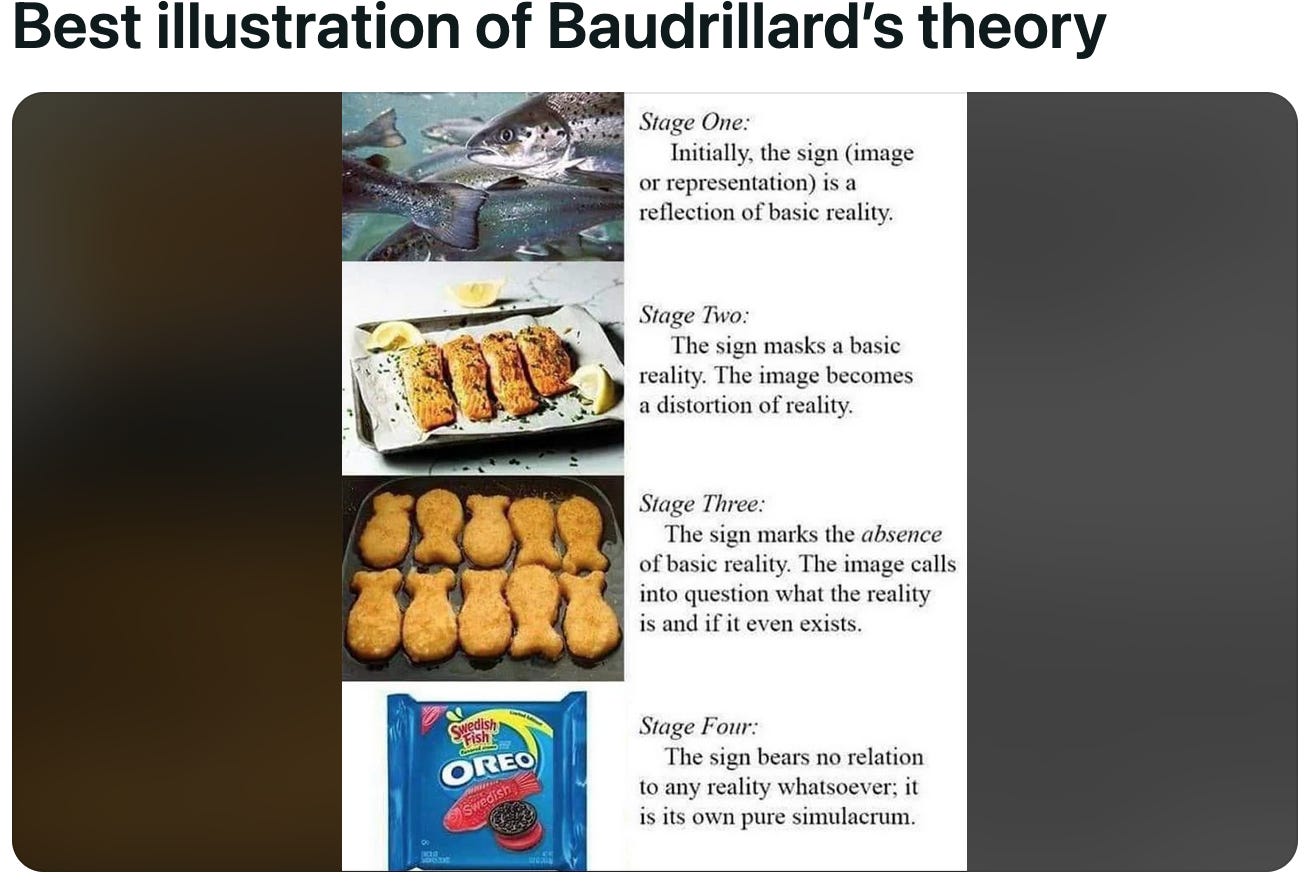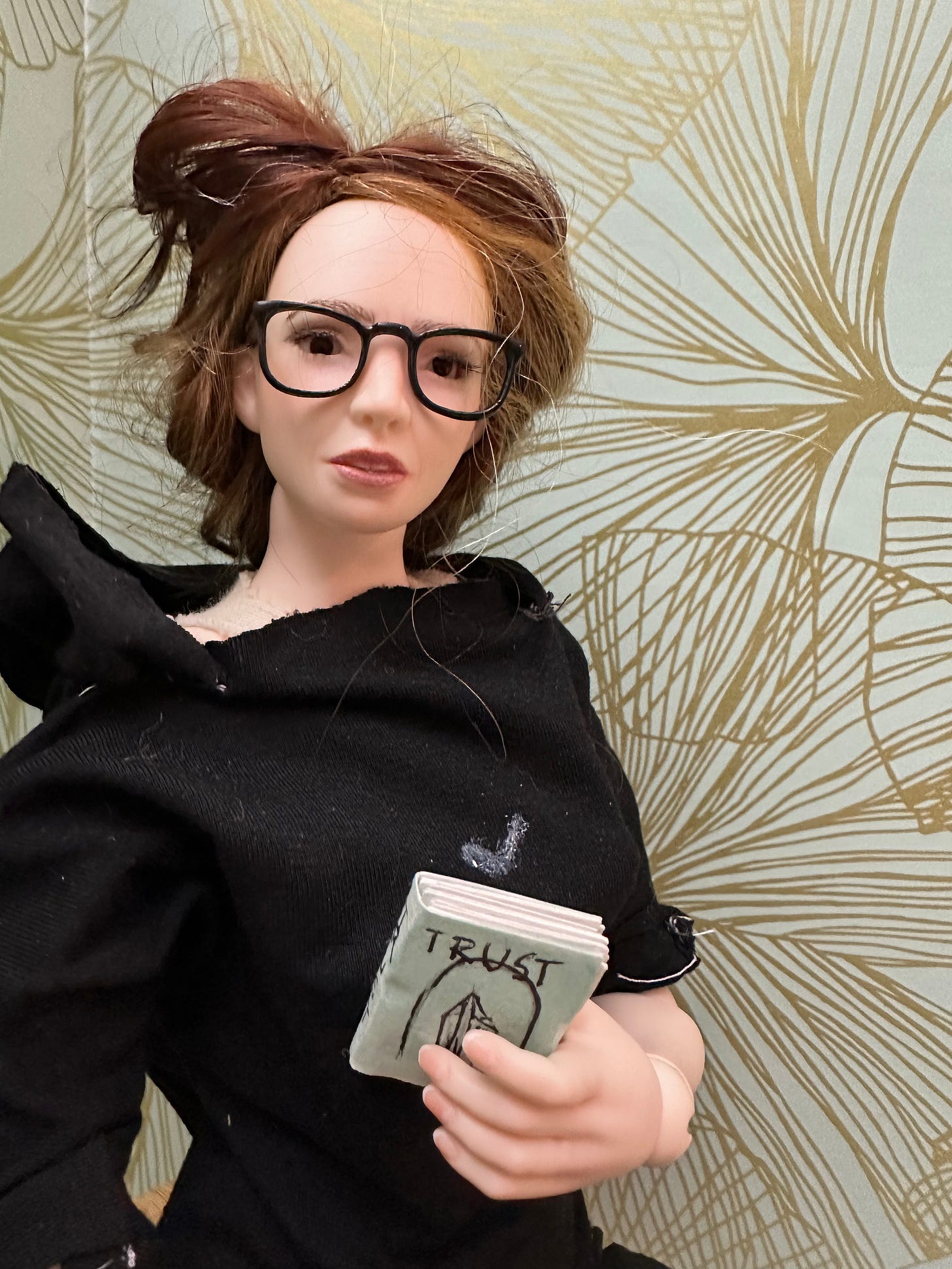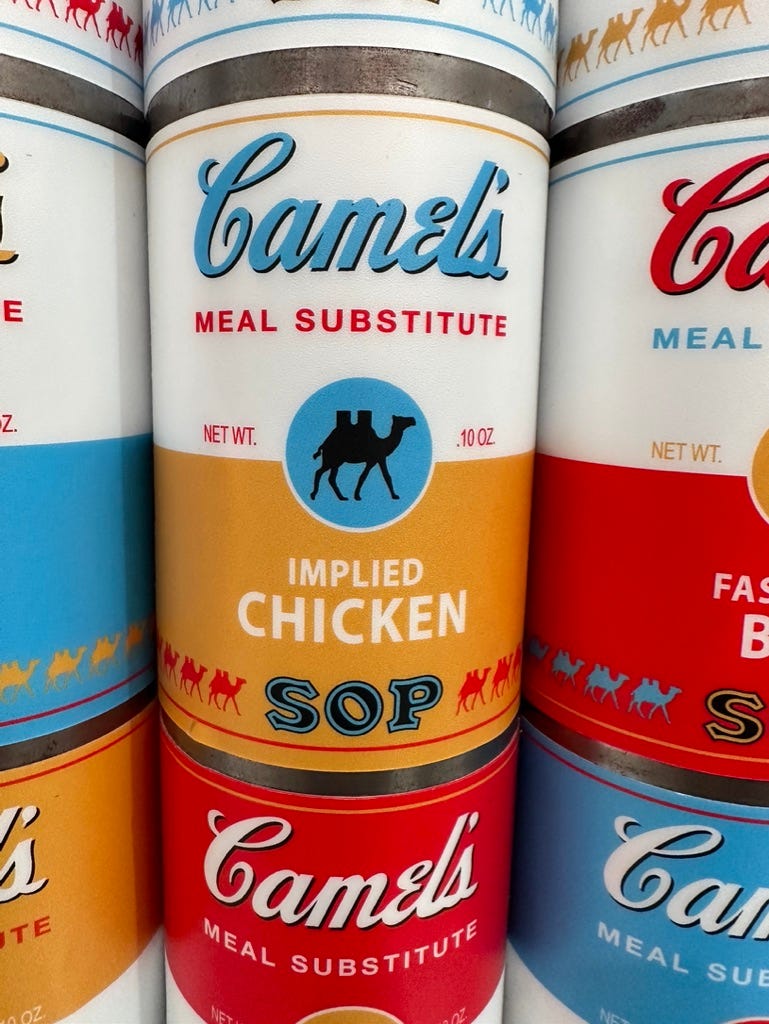When I was writing about how to use AI as a creative writer without losing agency I was also reading Hernan Diaz’s novel, Trust. I’ve written about this book before, but sometimes when I go about my day, I get flashbacks to passages I’ve read and they follow me around like hungry dogs that can smell the beef jerky in my purse.
This morning, I greeted my husband with a Rabbit, Rabbit to acknowledge the changing of the month and to be silly, I guess. He said, “What does that mean?”
It was at that point I had to face the fact that I wasn’t totally sure what it meant. I say shit and don’t exactly know what it means sometimes. “I think it’s for good luck,” I said. But then I did what most of us do, I picked up my phone and asked the oracle. I clicked the first link because it’s rabbit, rabbit, not brain surgery, I did not need to be discriminating.
"Rabbit, Rabbit," a tradition uttered on the first day of the month to bring forth positive luck, has a captivating past. It is believed that if one utters those words prior to any other on the very first day of a fresh month then good luck would prevail during the next thirty days.
This custom is believed to have originated from Lewis Carpet and his story published in 1865 known as Alice in wonderland.
Uh oh. AI strikes again. “Well,” I say to the oracle. “How can I even believe you? You are as unreliable as I am—pulling information from about a million neural networks to come up with this approximation of an answer. This almost right answer. This kitsch of an answer. It’s Lewis Carroll, and it’s Alice’s Adventures in Wonderland you dingaling.”
This reminds me of Jean Baudrillard in Simulation and Simulacra asserting that we are increasingly living in hyperreality a state of being where copies of originals are referenced more than the original source.
I love this meme by Philosophymemes on Reddit. It explains it so well.
It’s this approximation, this almost truth, this copy of a copy of an article that sent me spiraling back to Hernan Diaz’s passage from “Trust,” where the main character, Mildred Bevel, describes her husband’s family home as:
Kitsch. Can't think of English translation for this word. A copy that is so proud of how close it comes to the original that it believes there is more worth in this closeness than in originality itself. It looks just like imposture of feeling over actual emotion. Sentimentality over sentiment. Kitsch can also be in the eye. The sunset looks like a painting. Because artifice is now the ultimate standard. The original sunset has to be turned into a fake painting so that the latter may provide the measure of the former's beauty. Kitsch is always a form of inverted Platonism, prizing imitation over archetype, and in every case, it's related to an inflation of aesthetic value as seen in the worst kind of kitsch: classy kitsch ---solemn, ornamental, grand, ostentatiously arrogantly announcing its divorce from authenticity...Villa Solana was a cathedral to kitsch (370).
There are cathedrals to kitsch everywhere and some of them I even love. Hell, I made this copy of an original, and this one too.
When I was in Las Vegas, I went to the Omega Mart, which is an absolute cathedral to kitsch, like all of Vegas, really. But what’s fun about these two examples, is that they and we all know they’re imposters.
The Rabbit, Rabbit article doesn’t know it’s an imposter, posing as a piece of real information. But those are the ones we always have to watch out for, right?
This March, I’m going to try to reference the real world, the nouns that surround me, and my lived experience in my writing and actions rather than the facsimiles, TV shows, social media, movies, or other artistic works, that reference real life. I think this will be hard, but I like the idea and I want to see where it brings me. A little experiment to notice what’s original and what’s a copy.
Ciao for now, -n








So much to think about in referencing reality instead of being present to it. It's probably a bit inevitable, though, to continually reference, since we're made of neural networks that work hard to make connections between things, and some of those inaccurate connections are hysterically funny or incredibly imaginative, and that makes life sparkle. But maybe a beginning spot is being more aware when we're doing it and deciding if it's leaning towards a direction we choose.